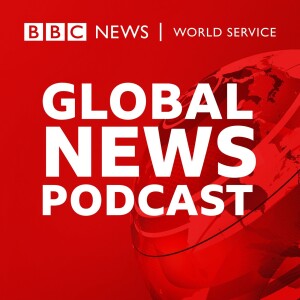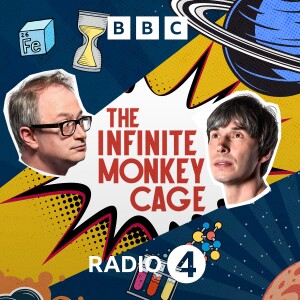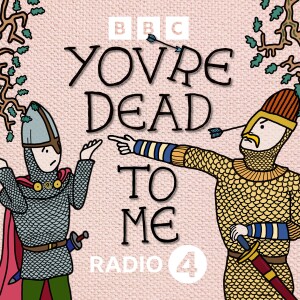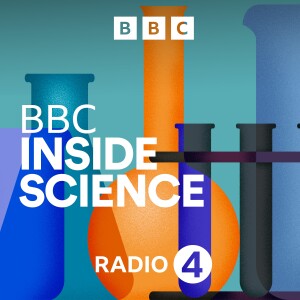The Gulf Stream, also known as the Atlantic Meridional Overturning Circulation (AMOC), is essential to stable global climate, and the reason we have moderate temperatures in Northern Europe. Now, a new modelling study suggests that this circulation could, at some point, be at a tipping point and collapse. We hear from one of the minds behind the model, post-doctoral researcher René van Westen from Utrecht University. But how likely is it that this will actually happen in the real world? Presenter Victoria Gill speaks to Jonathan Bamber who cautions that a gulf stream collapse is not imminent, and that it may just weaken slowly over time. Every summer in the Hudson Bay, on the Eastern side of Arctic Canada, the sea ice melts and the region’s polar bears head inland. But that ice-free season is getting longer, depriving the bears of that frozen platform that they use to pounce on their favourite prey – seals. So what do the bears do all summer? Research Wildlife Biologist Karyn Rode shares how she and her colleagues put a collar with video cameras on 20 polar bears, and what it revealed about their lives.
Is CERN finally going to get a gigantic new particle accelerator? Almost exactly one decade ago, Roland Pease reported from Switzerland about the very first meeting about the successor of the Large Hadron Collider which was used to discover the Higgs Boson. Now there’s an update to the story. Roland is back to tell Vic how far along CERN is with their plans, and how much more time and money it will take to build the Future Circular Collider.
Lovers of certain famous, creamy French cheeses could be in for a bit of a shock. Camembert and Brie are facing extinction as we know them! The Centre National de la Recherche Scientifique (CNRS) in Paris has stated that, over the last 100 years, the food and farming industry has placed too much pressure on the production of these types of cheeses. Now, the fungus traditionally used to grow the famous, fluffy white rinds has been cloned to a point where the lack of diversity in its genetic makeup means it can no longer be reproduced. Turophiles must learn to appreciate more diversity of tastes, colours and textures to protect the cheeses’ future.
Presenter: Victoria Gill Producers: Florian Bohr, Louise Orchard, Alice Lipscombe-Southwell Editor: Martin Smith Production Co-ordinator: Jana Bennett-Holesworth
BBC Inside Science is produced in collaboration with the Open University.
More Episodes
The perils of explaining science, Living to 500, What's good for your teeth and The future of stargazing
 2017-01-12
2017-01-12
RIP Granny the oldest Orca - Graphene + Silly Putty - Moving a Giant Magnet - Space in 2017
 2017-01-05
2017-01-05
Listeners' Questions
 2016-12-29
2016-12-29
Inuits and Denisovans, Sex and woodlice, Peace through particle physics, Caspar the octopus in peril?
 2016-12-22
2016-12-22
Rock traces of life on Mars, Desert fireball network, Gut microbes and Parkinson's Disease, Science Museum's maths exhibition
 2016-12-08
2016-12-08
Alzheimers research, Lucy in the Scanner, Smart bandages, From supernovae to Hollywood
 2016-12-01
2016-12-01
Predator bacteria therapy, New money for UK science, Stick-on stethoscope, Taming fears in the brain scanner
 2016-11-24
2016-11-24
Does Pluto have an ocean, Antarctica's oldest ice, Meat emissions, Swifts fly ten months non-stop
 2016-11-17
2016-11-17
Climate change questions, Animal computer interaction, Sounds and meaning across world's languages
 2016-11-10
2016-11-10
Italy's quakes, Ebola virus, Accidental rocket fuel, China in space
 2016-11-03
2016-11-03
Making mozzies safe with a microbe, CO2 at 400 ppm, Chixculub crater rocks, Why Mars Lander failed
 2016-10-27
2016-10-27
HFC Ban; Human Cell Atlas; Origin of Hunting with Dogs
 2016-10-20
2016-10-20
Life on Mars? Quantum Gravity. The deep origins of bird song
 2016-10-13
2016-10-13
Microbead impact, Remote animal logging, Royal Society book prize, Surgewatch
 2016-09-08
2016-09-08
Proxima b exoplanet, The Hunt for Vulcan, East Antarctic lakes, Deep sea shark hunting
 2016-08-25
2016-08-25
Autonomous cars, Bees and neonicotinoids, Marden Henge, Royal Society Book Prize
 2016-08-18
2016-08-18
Blow to the LHC "bump", Crow intelligence, Robot mudskippers, Royal Society book prize
 2016-08-11
2016-08-11
Signs of life on planets, Royal Society Book Prize, Queen Bee control, Galactic Prom 29
 2016-08-04
2016-08-04
Dinosaur extinction, Neanderthals in Gibraltar, Music appreciation, A year of New Horizons
 2016-07-14
2016-07-14
Juno, Space debris, Fake tumours, Risky plants
 2016-07-07
2016-07-07
Create your
podcast in
minutes
- Full-featured podcast site
- Unlimited storage and bandwidth
- Comprehensive podcast stats
- Distribute to Apple Podcasts, Spotify, and more
- Make money with your podcast
It is Free
You may also like

The Rest Is History


Global News Podcast


The Infinite Monkey Cage


Friday Night Comedy from BBC Radio 4


You’re Dead to Me

- Privacy Policy
- Cookie Policy
- Terms of Use
- Consent Preferences
- Copyright © 2015-2024 Podbean.com



 iOS
iOS Android
Android